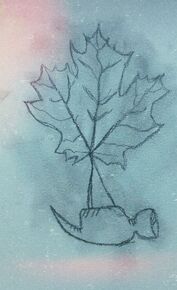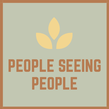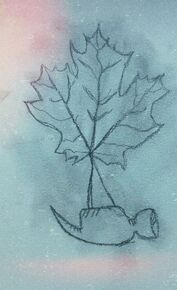 The large snowflakes delicately fell in late February as we listened to Bryan's calm, welcoming, voice recall his life’s events. “I was born in Watertown, New York and grew up at the foothills of the Adirondack mountains. I moved up there when I was seven. It was a good childhood. I was outside all of the time and it didn’t matter what time of year it was. I was just an outside person whether it was hunting, fishing, skiing, or snowshoeing, or hockey, a whole lot of hockey. I have three older sisters and a younger brother. I thought it was a great childhood. I had great parents. My parents were always busy. They ran a hotel. We kind of got to sneak around there as kids. Me and my brother would go places we weren't supposed to around the hotel. We got away with what we could.” Bryan’s love for the outdoors seeped into every aspect of his life, including some of his fondest memories. “My favorite childhood memories are going up into Canada on canoe trips with my dad. We would go way up about a thousand miles into the park. We would go on hundred mile canoe trips. I played hockey in Canada in the summers. I spent most of my summers in Canada at a hockey camp. My dad would pick me up at the end of the camp and we would always go on a trip. I grew up on Cranberry Lake which was about 14 miles from the hotel. That was a fun time with boats, canoes, and always something to do. I liked to spend time outside and I never really watched cartoons or played video games.” School represented a place Bryan did not enjoy. “I didn’t like it [school] and I didn’t pay much attention. My grades were good in the couple things I liked. I didn’t like math and didn’t know how I would ever use algebra since I already knew what I wanted to do. I struggled to get through math and my dad didn’t understand that because he was college educated. He thought it should be easy and basic. I skipped a lot of school and I got by with it. I know they [schools] keep better records of that [skipping classes] now.” Bryan’s story took many twists and turns, one of these twists eventually led him to La Crosse. “I was working construction with my brother and we got offered some work out here [La Crosse]. We were in Saint Thomas and Saint Johns Islands after Hurricane Andrew. It was devastating. We were working on some of the hotels and ran into somebody who asked if we would like to come to work in Madison. I knew Madison was the capital of Wisconsin, but I’d never been there. I never thought I would come out this way. We stayed real busy with construction. This was the late 90s. I went back to New York once to work a job and then came back to work in Wisconsin Dells and then La Crosse. Then I married a girl out here. I never stayed in one spot too long, but I married her and I’m still here. She passed away and I’m still here. I’m not sure why sometimes.” Bryan’s life changed when he suffered a devastating injury on the job, and that injury eventually led to his experience with homelessness. “I had a construction accident and I couldn’t go back to work because of a head injury. I was kind of shocked when they said you’re not going to go back to work. I remember the lady at the hospital telling me [I couldn’t go back] and I didn’t know what to do. I said, I’ll go live in the woods where I don’t have to pay for things. It was cold. I would ride my bike into town and get what I wanted. In the winter it would get to 30 below. Bikes don’t even work good when it’s that cold. One day I went to town because I needed more propane. Then somebody introduced me to Sue. I had been homeless for almost two years. Sue asked if I really wanted to go back into the woods. My toes were frostbitten. Sue talked to me about the Warming Center. I had never heard of the place. I was low on propane and it was cold. So I listened to Sue and went to the Warming Center. Eventually, I bought a car and stayed in that for a long time. I volunteered for the Hospitality House. I would make sure it was clean at every entrance and clean up cigarette butts from the driveway. I would take out the garbage, sweep, and mop.” The aftermath of experiencing homelessness extends beyond the streets. Bryan elaborated on his first nights in housing. “I had help finding an apartment. At first I couldn’t sleep in there [the apartment] after sleeping outside for so long, so I would go back down and sleep in my car. I did that for a few nights because I was so used to it. You wouldn’t think it would matter, but I got so used to sleeping in the car. I was used to falling asleep in the cold.” A typical day for Bryan includes making someone’s day brighter and fixing the unfixable. “Some days are boring. I try to find something to work on, but I feel cooped up. It [my apartment] feels small.. I don’t care for that. I fix a lot of things, sharpen things, and rewire things. I rebuild things. Some days I get to go help Sue and we ride around and help people. I had never tried doing that [helping people] since I worked construction. Now I know people need help. I didn’t believe in mental illnesses and now I know it’s much more serious than what I thought. Now I love helping people.” One of Bryan’s goals includes returning to New York and living closer to his family. “I’m not in contact with my family like I used to be. It seems like it’s just funerals when I see them. They’ve all been out here and visited me. My son lived with me out here for a little bit. My daughter finished her last year of school nearby. I was in contact with them around Christmas time. I would like to be in better contact with them [my family]. I have three kids, two daughters, and a son. I also have grandchildren. My kids all live in New York.” Bryan remains hopeful for his future with big dreams of returning to his own great outdoors. “I’d like to go back to Upstate New York. I would maybe start a small business or something. I would do guiding, canoe guiding or tourist guiding. I would take people hunting, camping, and hiking. I would take people skiing, downhill or cross country. I’d go fishing. I like to trout fish. I would walk for miles and explore.” Help remains behind many doors, Bryan encourages others experiencing homelessness to seek out support. “Look for what help is out there. I didn’t realize the help that was out there. There are resources and I don’t think people always know they’re out there. There’s all kinds of help here. No one in this town should go hungry. There is help needed with getting people housed and out of the weather.” Bryan left us with a final message of encouragement, and highlighted that we all have a role helping to end homelessness. “Try to get involved and find out what’s going on. I never thought much about homelessness or what it was. I didn't think it would happen to me. I always thought homelessness was people drinking out of brown paper bags like in the movies or hanging out in the alley with booze. Now I realize it's not like the movies. There is more to it. There are people suffering out there that I never thought much about. Now I care about the people I’ve met. Try to help.” Artist’s Note: Bryan radiates kindness, through his desire to work on small projects for others. He loves fixing things and finds himself the happiest in nature. The veins of the leaves represent the paths of Bryan’s life and how his work remains intertwined with homelessness.
0 Comments
Leave a Reply. |
|

